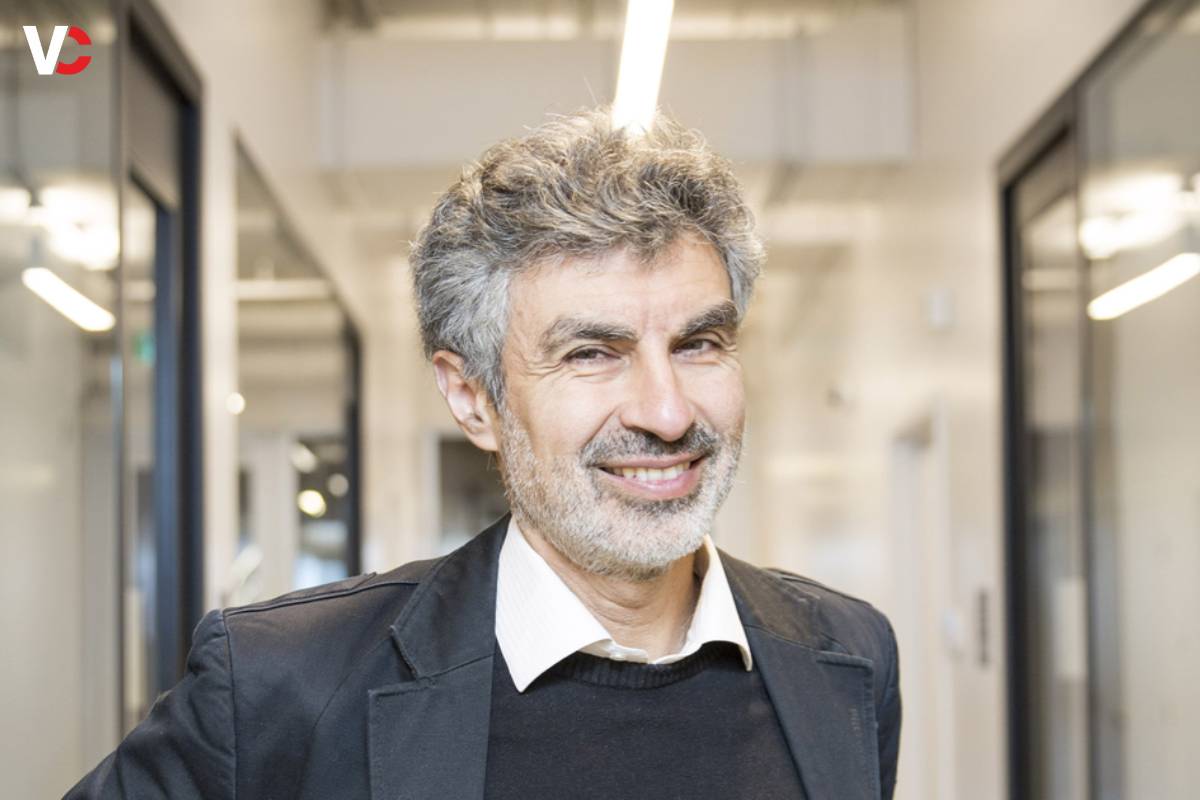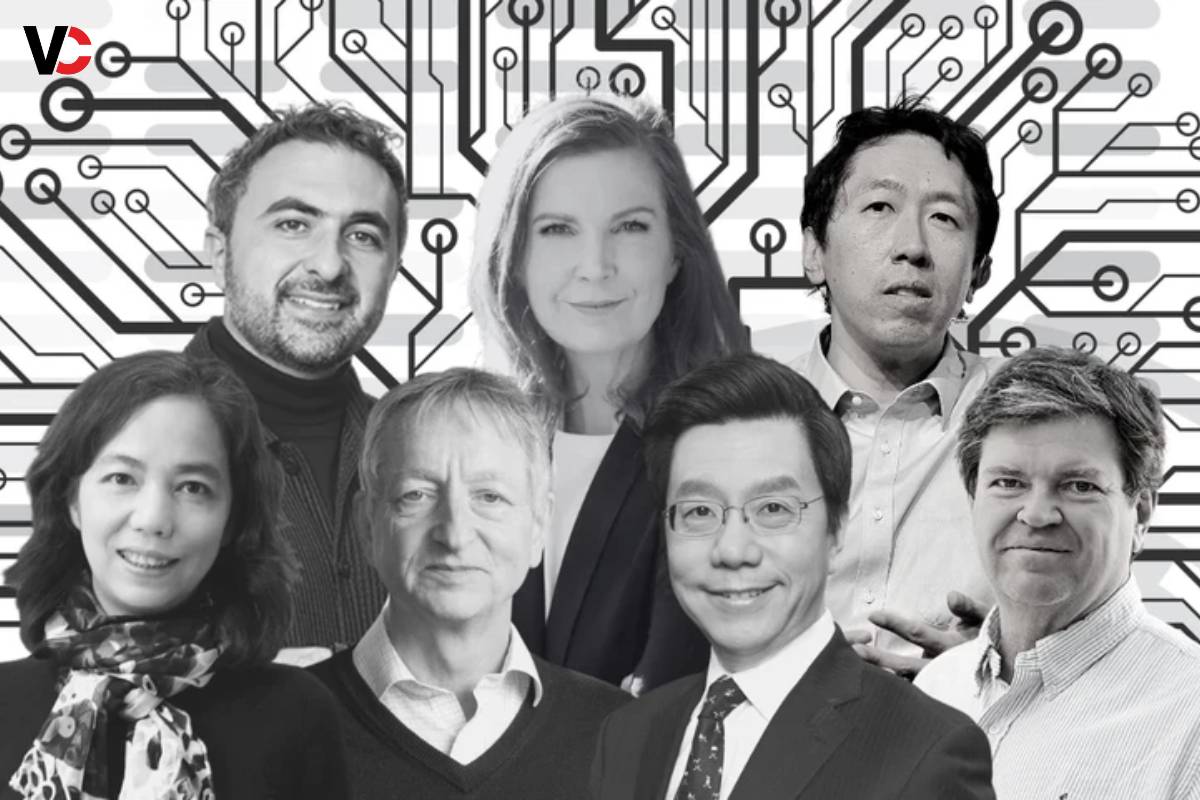Artificial Intelligence (AI) stands as one of the most transformative technologies of our time, promising to revolutionize industries, economies, and societies. At the heart of this revolution are visionary leaders who have pioneered AI’s evolution, pushing boundaries, and charting new frontiers. In this blog, we delve into the insights and experiences shared by some of these AI pioneers, exploring their contributions, challenges, and visions for the future.
Here are the 3 AI Leaders Conversations:
1. Dr. Andrew Ng
Dr. Andrew Ng is a globally recognized AI expert, co-founder of Google Brain, and former Chief Scientist at Baidu. His contributions to AI education through Coursera and his work in deep learning have been instrumental in democratizing AI knowledge and fostering global AI literacy.
Insights from Dr. Andrew Ng:
“In AI, the key challenge is not just building better models, but making AI more accessible and understandable for everyone. Education and collaboration are crucial in democratizing AI and ensuring its responsible use.”
Dr. Ng emphasizes the importance of AI education and believes in the transformative potential of AI when used responsibly to tackle global challenges such as healthcare, climate change, and education.
2. Dr. Fei-Fei Li
Dr. Fei-Fei Li is a prominent AI researcher, Co-Director of the Stanford Human-Centered AI Institute, and former Chief Scientist of AI/ML at Google Cloud. Her research focuses on AI’s intersection with human cognition and its applications in healthcare, education, and robotics.
Insights from Dr. Fei-Fei Li:
“AI’s journey is about more than just algorithms; it’s about understanding human intelligence and building systems that can augment human capabilities while respecting ethical boundaries.”
Dr. Li emphasizes the importance of interdisciplinary collaboration in AI research and advocates for a human-centered approach to AI development that prioritizes fairness, transparency, and accountability.
3. Dr. Yoshua Bengio

Dr. Yoshua Bengio is a leading AI researcher, Full Professor at the University of Montreal, and Co-recipient of the 2018 Turing Award for his contributions to deep learning. His research focuses on neural networks, unsupervised learning, and AI’s role in advancing scientific discovery.
Insights from Dr. Yoshua Bengio:
“AI has the potential to revolutionize how we understand and interact with the world, but ethical considerations must guide its development to ensure it benefits humanity.”
Dr. Bengio emphasizes the ethical implications of AI and advocates for responsible AI research that prioritizes societal well-being and addresses biases and ethical challenges inherent in AI systems.
Challenges and Opportunities
While AI leaders are driving unprecedented technological advancements, they also face significant challenges. These include ethical dilemmas surrounding AI’s use, concerns about bias and fairness in algorithms, and the need for regulatory frameworks to govern AI applications responsibly.
Ethical Considerations: AI leaders recognize the ethical responsibilities associated with AI development, advocating for ethical guidelines that prioritize human welfare, fairness, and transparency.
Bias and Fairness: Addressing bias in AI algorithms and ensuring fairness in decision-making processes are critical challenges that AI leaders are actively working to mitigate through research and industry collaboration.
Regulatory Frameworks: The development of regulatory frameworks is essential to govern AI applications, ensuring they adhere to ethical standards and protect individuals’ rights while fostering innovation.
Key Areas of Focus:

Ethical AI Development: Prioritizing ethical considerations in AI research and development to ensure responsible AI deployment.
AI Education: Promoting AI literacy and education to empower the next generation of AI leaders and practitioners.
Interdisciplinary Collaboration: Fostering collaboration between diverse disciplines to advance AI’s capabilities and applications.
Global Impact: Harnessing AI’s potential to tackle pressing global challenges such as healthcare disparities, climate change, and socio-economic inequality.
The Role of Leadership in AI Ethics and Governance
AI leadership extends beyond technical expertise to encompass ethical stewardship and governance. Leaders in AI, such as Dr. Andrew Ng, Dr. Fei-Fei Li, and Dr. Yoshua Bengio, play pivotal roles in shaping AI ethics and governance frameworks that ensure AI technologies are developed and deployed responsibly.
Promoting Ethical AI Development:
AI leaders advocate for the integration of ethical considerations into AI research and development processes. This involves prioritizing principles such as fairness, transparency, accountability, and privacy to mitigate potential harms associated with AI technologies.
Dr. Fei-Fei Li emphasizes the importance of a human-centered approach to AI, where ethical guidelines guide the design and deployment of AI systems to align with societal values and norms. By championing ethical AI development, leaders foster trust and confidence in AI technologies among stakeholders, including policymakers, businesses, and the general public.
Addressing Bias and Fairness:
One of the critical challenges in AI is the presence of bias in algorithms, which can perpetuate discrimination and inequality. AI leaders recognize the importance of addressing bias and ensuring fairness in AI systems to promote inclusivity and equity.
Dr. Yoshua Bengio emphasizes the need for AI researchers and developers to actively mitigate biases through diverse data representation, algorithmic transparency, and rigorous testing methodologies. By promoting diversity and inclusivity in AI development teams and processes, leaders contribute to building AI systems that are fair and unbiased.
Developing Regulatory Frameworks:

AI leaders advocate for the development of regulatory frameworks that govern the responsible use of AI technologies. Regulatory frameworks are essential to establish guidelines and standards for AI deployment, ensuring compliance with legal and ethical principles.
Dr. Andrew Ng emphasizes the importance of proactive engagement with policymakers and regulatory bodies to shape AI policies that balance innovation with societal concerns. By advocating for clear and robust regulatory frameworks, leaders guide industry stakeholders on ethical AI practices and promote responsible AI adoption across sectors.
Advancing Healthcare and Education:
AI has the potential to revolutionize healthcare by enabling personalized medicine, predictive diagnostics, and efficient healthcare delivery systems. Leaders like Dr. Fei-Fei Li advocate for AI-driven innovations that improve patient outcomes, enhance medical research, and address global health challenges.
In education, AI technologies offer opportunities for personalized learning experiences, adaptive tutoring systems, and data-driven educational interventions. Dr. Andrew Ng emphasizes the role of AI in expanding access to quality education and lifelong learning opportunities through online platforms and digital learning tools.
Economic and Workforce Implications:
AI’s automation capabilities raise concerns about the future of work and economic disruption. AI leaders advocate for policies and initiatives that support workforce reskilling, job creation in AI-related industries, and equitable distribution of economic benefits.
Dr. Yoshua Bengio emphasizes the need for AI technologies to complement human capabilities rather than replace jobs, fostering collaboration between humans and AI systems in diverse sectors. By promoting responsible AI deployment and workforce development initiatives, leaders contribute to building inclusive and resilient economies in the AI era.
Conclusion
AI leadership is defined by innovation, vision, and a commitment to ethical and responsible AI development. Pioneers in AI, such as Dr. Andrew Ng, Dr. Fei-Fei Li, and Dr. Yoshua Bengio, exemplify these qualities through their groundbreaking research, educational initiatives, and advocacy for AI’s societal impact.
As AI continues to evolve, so too will the role of AI leaders in shaping its future. By fostering collaboration, promoting ethical standards, and prioritizing human-centered AI, these leaders are paving the way for a future where AI enhances our lives, drives economic growth, and addresses global challenges responsibly and inclusively.
In conclusion, AI leadership is not just about technological innovation but also about ethical stewardship and societal impact. By learning from AI pioneers and embracing their vision for the future, we can collectively navigate the opportunities and challenges of AI to build a more equitable and sustainable world. These leaders inspire us to think beyond the algorithms and embrace AI’s potential to transform our world for the better.
Also Read: Top 5 Trends in EdTech to Watch in 2024








.jpg)









